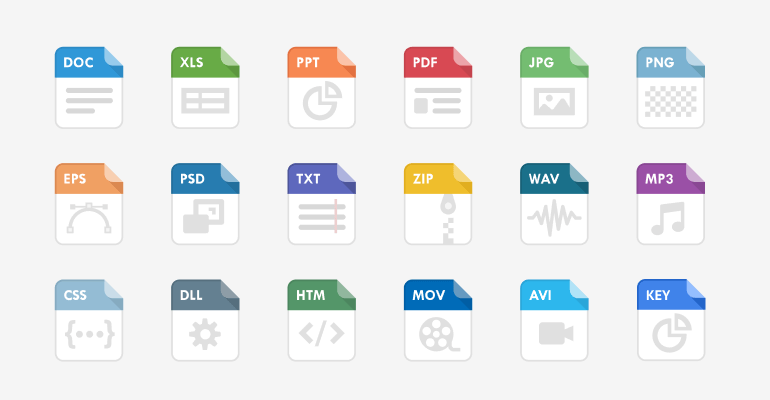

10 Useful Tips for Successful Data Entry
Data entry is an extensive field with varied requirements that greatly depend on the position, industry, and company. If you work in data entry or are considering doing so, you will most definitely want to learn how to improve your data entry skills so that you can compete and advance in the field.
In this post, we’ll cover data entry, the skills needed for data entry jobs, and advice on developing and honing your data entry and typing skills. So, let’s read on to discover!
What’s Data Entry?
Data entry is the process of adding new or updating existing information in a database, spreadsheet, or online service using a computer system, keyboard, mouse, scanner, or another data entry device
What Does a Data Entry Do?
A data entry specialist (aka transcriber, typist, or word processor) is a person responsible for entering data into a computer system. The data entry process might involve typing information from physical forms, transcribing data from audio and video files, or scanning images into digital format. Once the data has been entered, it can be utilized for a wide range of purposes, including creating reports and analyzing trends.
How Does Data Entry Work?
Data entry works by transferring data from one source to another. This can be done by manually inputting information from one source into another or by scanning a document and using OCR software to turn it into a text file.
What Is a Good Data Entry Speed?
Although a speed of 30 words per minute is acceptable to qualify for an entry-level role, an experienced typist working for a professional document typing service would typically be expected to average roughly 80 words per minute.
Now that you know how to do data entry, let’s move on to the essential skills to help you excel as a typist and the top tips for data entry work.
What Skills Are Needed for Data Entry?
Accurately processed, entered, and archived data, whether financial information, medical records, or anything in between, is crucial for the company’s success. Inaccurate data entry can cause a chain reaction, resulting in costly mistakes, missed opportunities, and legal issues. Therefore, data entry specialists must have a specific set of hard and soft skills to qualify for data entry processing jobs and perform their duties effectively.
Here are just a few of them:
- Basic software skills for working with databases, spreadsheets, and word processors.
- Exceptional communication abilities, both in writing and verbally, to communicate with team members.
- Strong understanding of data entry best practices and ability to follow established guidelines.
- Fast typing speed, ranging from 30 to 80 words per minute.
- Ability to meet the expected accuracy threshold.
- Attention to detail and self-motivation to succeed in the role.
What Are the Best Tips for Handling Data Entry Duties?
There are various ways to improve data entry skills on your own, using a computer system or through professional training in a structured environment. Here are some tips to help you become a better data entry professional:
1. Practice for data entry
Keep track of your typing speed and make sure your hands are positioned for maximum comfort and accuracy and that you are correctly seated in your chair. As a result, you won’t have to move around as much or get up as often, which will improve your typing speed and efficiency.
2. Organize your desk space
Data entry requires you to sit in front of a computer for an extended period. Therefore, it is important to ensure your workspace is ergonomic and your monitor is at eye level, near the mouse. You can also use dual monitors to make the most of your data entry sessions.
3. Master data entry hacks
Numerous shortcuts with different software packages can save you substantial time. In Excel, for instance, you can enter previously written information using the TAB and ENTER buttons. You can also find lots of keyboard and spreadsheet hacks online or ask your supervisor for advice.
4. Eliminate distractions
Keeping your attention on the job at hand can be difficult when you work in data entry. Consider creating a rigid timetable and grouping tasks by their priority. It may also be helpful to put your phone out of reach and on mute when working to reduce distractions.
5. Try online typing tools
There are many online tools for data entry practice that allow you to test your typing skills and find areas for improvement. You can use them to increase your typing speed and watch online tutorials to better understand how different data entry software works.
6. Follow data entry accuracy standards
Always stick to the company’s guidelines and data entry requirements to ensure your data’s accuracy. This way, you’ll not only avoid any confusion or misunderstandings that could lead to errors and fines but also ensure consistency in data entry across different projects and team members.
7. Have enough data to enter
It can be both inefficient and annoying to have to pause what you are doing to look for more data to enter. Therefore, gather any papers, files, and notes you may have before you get down to work to have sufficient amounts of information right from the start.
8. Always focus on useful information
Data entry is a time-consuming process. That’s why your focus has to be placed on the information that will be most useful for the company. The documents that are not of primary interest can be outsourced to a professional Word to Excel service to save time and effort.
9. Regularly save the entered data
There is nothing more frustrating than typing a substantial amount of data just to lose it because you forgot to save it. Having a program automatically save information is really convenient, but you should also learn the habit of saving data manually, not to lose a thing.
10. Make time to proofread
Mistakes can happen every now and then. That’s why it’s crucial to review your work before submitting it. In case you don’t have access to an editor or anyone who can proofread your writing, try taking a break from a project. This way, when you return to double-check it, your eyes will be fresh.
Remember, accurate data is the cornerstone of well-informed decision-making and can ultimately make all the difference in the company’s success. So always strive for perfection and never underestimate the importance of the work you do.


